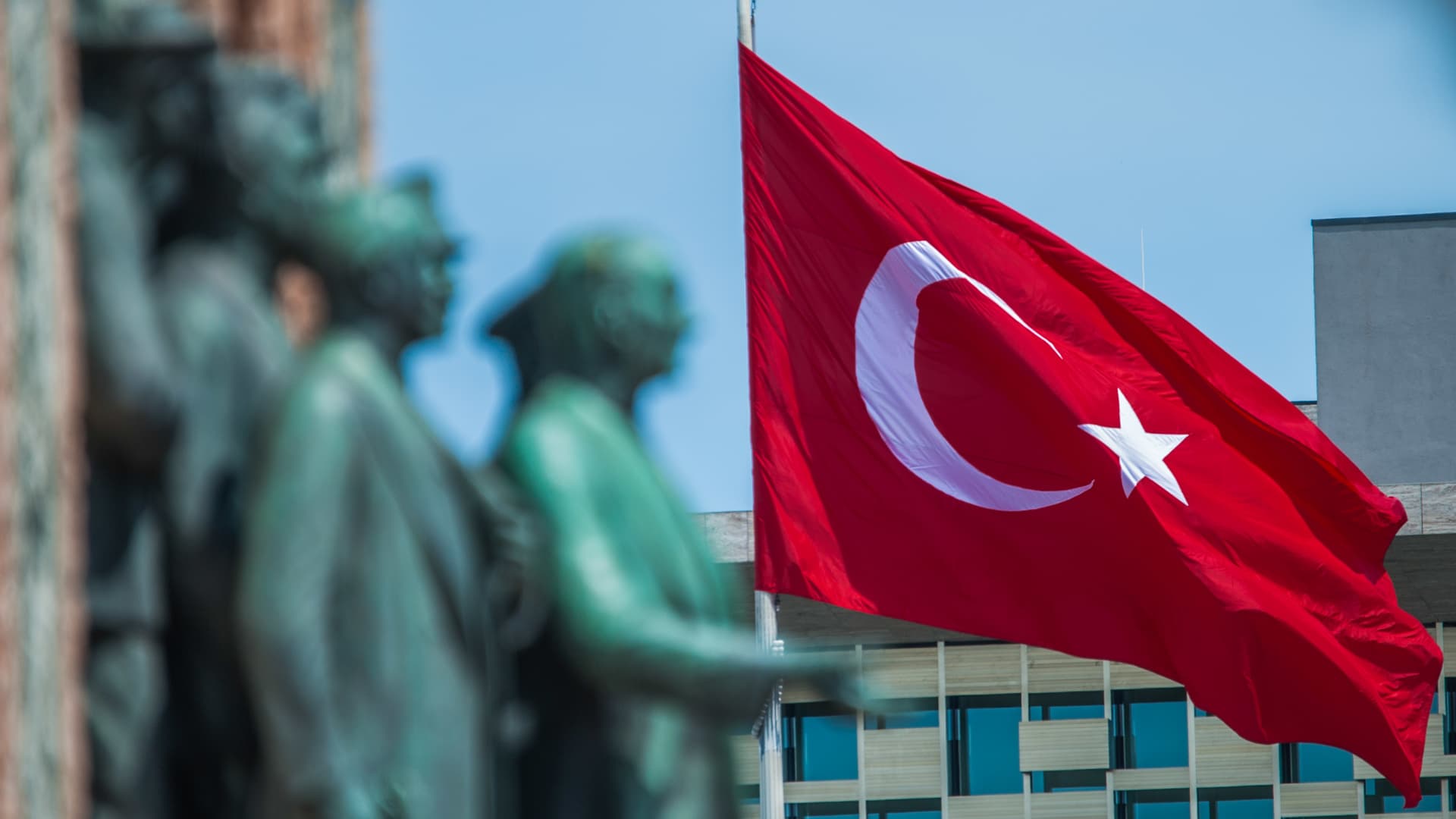Turkey’s Taksim Square, with the figure of Kemal Ataturk, the first president, and the Turkish flag in the background.
Sopa Images | Lightrocket | Getty Images
Turkey’s central bank hiked its key interest rate to 30% on Thursday, a 500-basis point jump from 25%, as Ankara continues to battle double-digit inflation.
The Turkish lira weakened slightly to 27.06 against the dollar on the news, with the greenback up 0.3% against the local currency at 2:05 p.m. in Istanbul.
The central bank decision follows a series of rate hikes that have been painful for Turks, as the country aims to turn around several years of skyrocketing inflation and dramatically weakened currency — in large part the result of stubbornly loose monetary policy by the Ankara government.
The lira is down 30% against the dollar year to date and has lost 78% of its value against the greenback in the last five years.
In June, Turkey lifted its key interest rate for the first time in more than two years, after Turkish President Recep Tayyip Erdogan appointed policymakers who had vowed to implement economic orthodoxy to turn around the inflation picture.
Traditional economic orthodoxy holds that rates must be raised to cool inflation, but Erdogan — a self-declared “enemy” of interest rates who calls the tool “the mother of all evil” — vocally espoused a strategy of lowering rates instead.
Turkey steadily lowered its policy rate from 19% in late 2021 to 8.5% last March, as inflation ballooned, breaching 80% in late 2022 and easing to just under 40% in June.
After starting on its hiking path, the central bank in July stated its aim to get inflation down to 5% in the medium term — an ambitious forecast, as Turkey’s annual inflation jumped to near 59% in August. Ankara now expects annual inflation to reach 65% at the end of 2023, up from a forecast of 24.9% a year ago.

